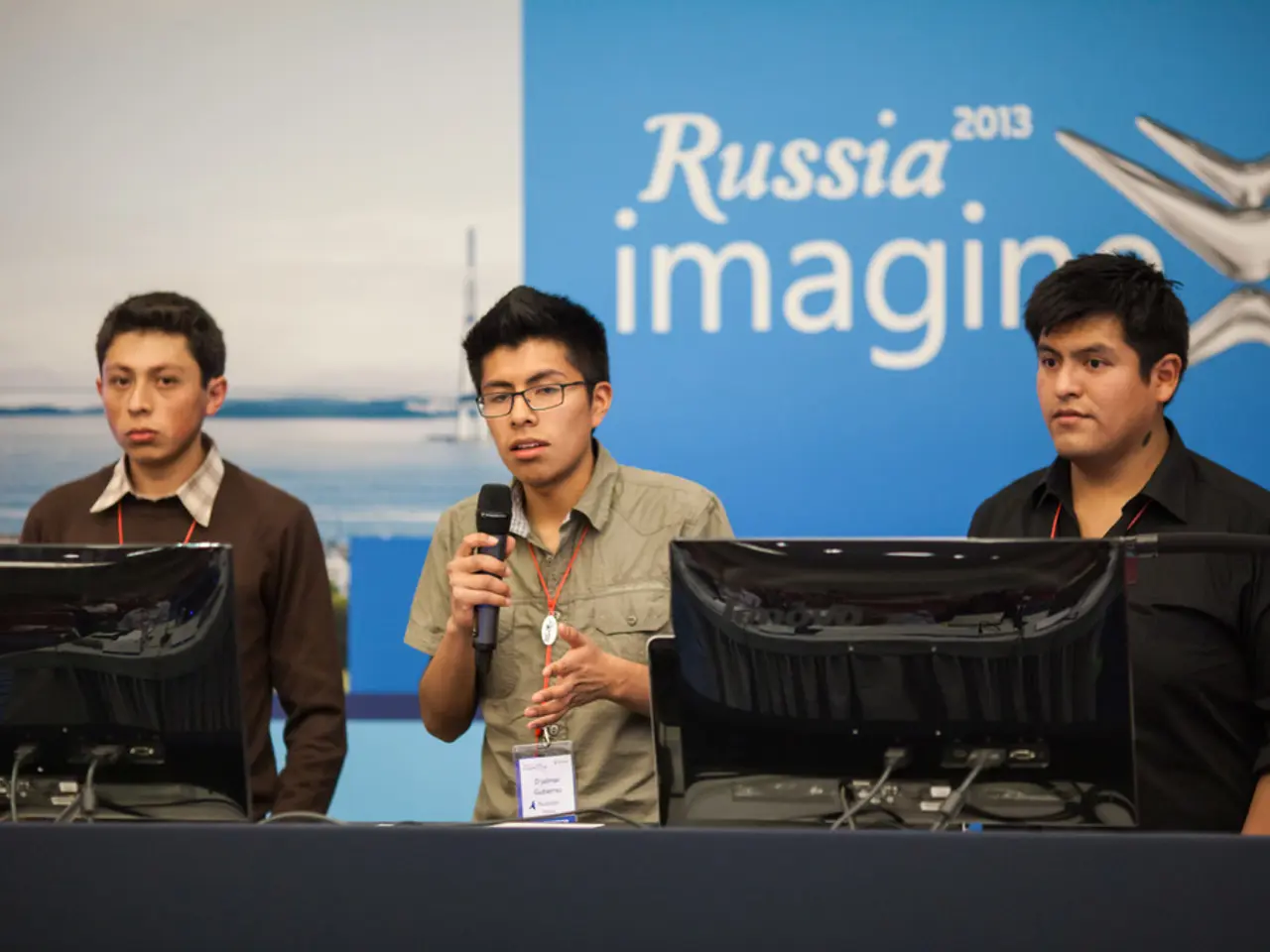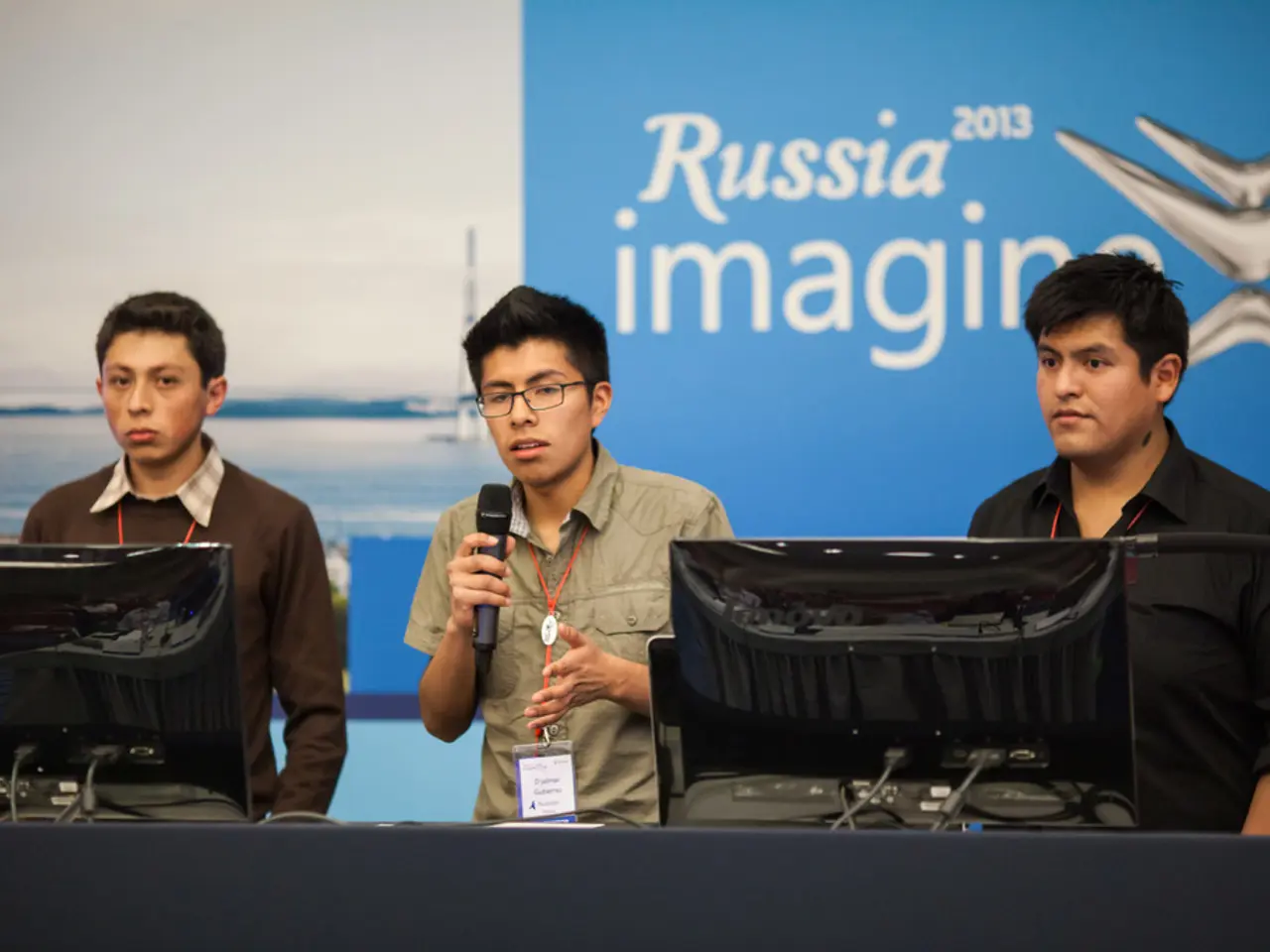In the midst of Trump's trade-related tensions, National Security Advisor Doval convenes with Putin in Moscow to discuss enhancing the strategic partnership between India and Russia.
The US has imposed a steep 50% tariff on Indian goods, citing India's continued purchase of Russian oil as the primary reason for this trade action. This tariff increase came as an additional 25% on top of previous duties, reflecting US concerns about India's engagement with Russia despite geopolitical tensions and sanctions imposed by the US and its allies.
The implications of these tariffs on India's oil trade with Russia and the risk of secondary sanctions are significant. The 50% tariff sharply raises the cost of Indian exports to the US market, likely reducing India's trade competitiveness and creating economic pressure on India to reconsider its oil imports from Russia.
The US appears to be using tariffs as a tool to deter countries from continuing economic relations with Russia, effectively functioning as a form of secondary sanction without directly sanctioning Indian entities. While no direct secondary sanctions on India have been publicly announced in the latest executive orders, the expanded tariffs signal the US government's willingness to penalize trade partners who maintain strong economic ties with Russia. This could foreshadow stricter measures or compel India to negotiate trade and security agreements with the US to ease tariffs as noted in Executive Order 14257 modifications.
The tariffs' immediate effect may be a recalibration of India's Russian oil purchases, possibly prompting India to seek alternative suppliers or negotiate compromises to maintain access to the US market without facing prohibitive trade costs.
US President Donald Trump made this statement during a White House press briefing, saying "You're going to see a lot more... You're going to see so much secondary sanctions." The US administration has cited India's ongoing oil trade with Russia as the reason for the new trade barriers.
The US-India trade relationship is currently strained due to the newly imposed tariffs and the threat of secondary sanctions. India has protested this as selective pressure and argued that it is being unfairly targeted by Washington and Brussels. In response, India has pointed out the EU's trade ties with Russia, citing projected 67.5 billion euros in goods trade with Russia in 2024 and 17.2 billion euros in services trade in 2023.
India and Russia continue to collaborate on defense and strategic initiatives, including the supply of S-400 air defense systems, MiG-29 fighter jets, and joint production of AK-203 rifles and BrahMos missiles. National Security Advisor Ajit Doval met with Russian President Vladimir Putin in Moscow on Thursday to discuss these collaborations and other matters. Prior to meeting Putin, NSA Doval held talks with Secretary of the Russian Security Council, Sergey Shoigu, where they discussed cooperation between Russia and India in multilateral formats and exchanged views on key international security issues.
The duties will apply to all eligible Indian imports arriving in the US, except for consignments that are already in transit and have received clearance before September 17. The meeting took place at the Kremlin, as confirmed by the Russian Embassy in India on a social media platform. The statement was made shortly after the announcement of the new tariffs.
The escalating war-and-conflicts and subsequent policy-and-legislation, particularly the US-imposed tariffs on Indian goods over India's continued oil purchases from Russia, have significantly impacted the politics and general-news landscape, creating a tense US-India trade relationship. Both nations are now navigating the complexities of their economic and defense collaborations, potentially leading to changes in oil trade, exploration of alternative suppliers, or negotiations to ease trade costs.








